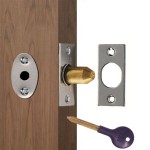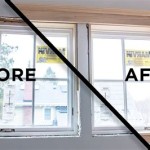Insulating the interior walls of your home can help reduce energy costs and improve the overall comfort of your home. However, it’s important to understand the types of insulation available and the pros and cons of each before you decide to insulate your walls. In this article, we’ll explore the benefits of insulating interior walls, the different types of insulation available, and the cost and installation process.
What Are the Benefits of Insulating Interior Walls?
Insulating your interior walls can have a number of benefits, including:
- Reduced energy costs – Insulating your interior walls can help reduce energy costs by keeping the air inside your home from escaping through the walls.
- Improved comfort – Insulation helps to keep your home comfortable all year round by keeping the temperature inside steady.
- Reduced noise – Insulation can also help to reduce noise from outside, making your home quieter and more peaceful.
What Types of Insulation Are Available?
There are a few different types of insulation available for interior walls, including:
- Fiberglass – Fiberglass insulation is one of the most common types of insulation used in homes. It’s made of tiny glass fibers that help to block air movement and keep your home comfortable.
- Cellulose – Cellulose insulation is made from recycled paper and is often used in attics and walls. It’s very effective at blocking air movement and is also fire-resistant.
- Spray foam – Spray foam insulation is made from polyurethane and is sprayed into walls and cavities to fill in any gaps or cracks. It’s very effective at blocking air movement and is also mold and mildew resistant.
What Is the Cost and Installation Process?
The cost of insulating your interior walls will depend on the type of insulation you choose, the size of your home, and the complexity of the installation. Generally speaking, the cost of insulating your walls can range from a few hundred dollars to several thousand dollars. It’s important to get multiple quotes from different contractors before making a decision.
The installation process for insulating interior walls is fairly straightforward. The insulation will need to be cut to fit the walls and then installed in the spaces between the studs. It’s important to make sure the insulation is properly installed to ensure it’s effective at blocking air movement and keeping your home comfortable.
Conclusion
Insulating your interior walls can have a number of benefits, including reduced energy costs, improved comfort, and reduced noise. There are a few different types of insulation available, including fiberglass, cellulose, and spray foam insulation. The cost and installation process can vary depending on the size of your home and the type of insulation you choose. It’s important to get multiple quotes from different contractors to ensure you get the best price.







/man-installing-insulation-182186960-583dfbb05f9b58d5b170a0ee.jpg)







Related Posts








